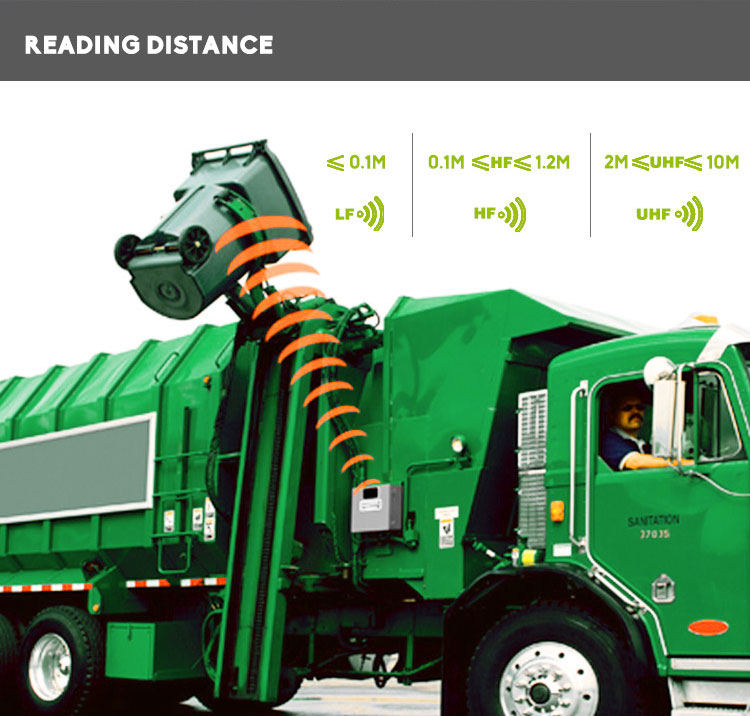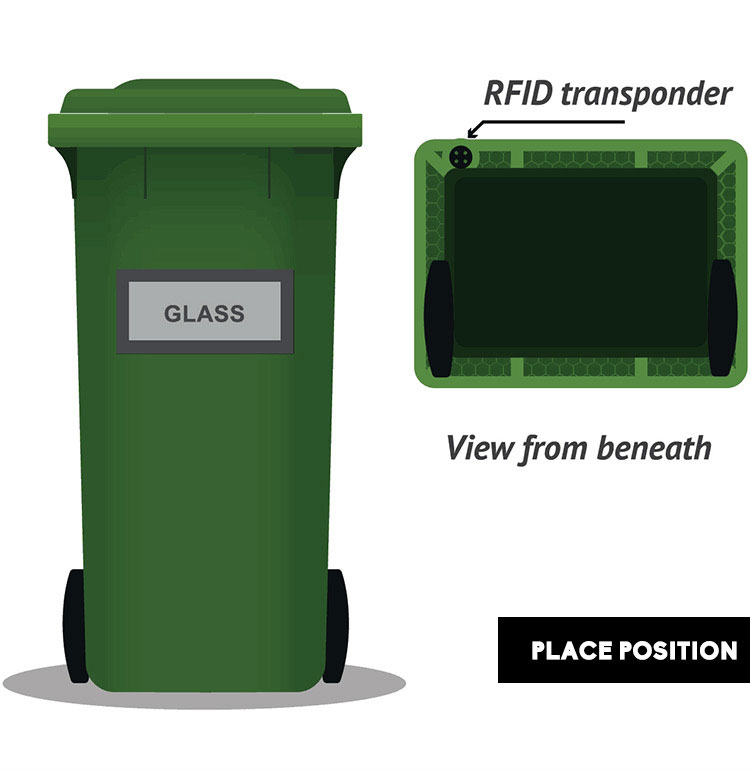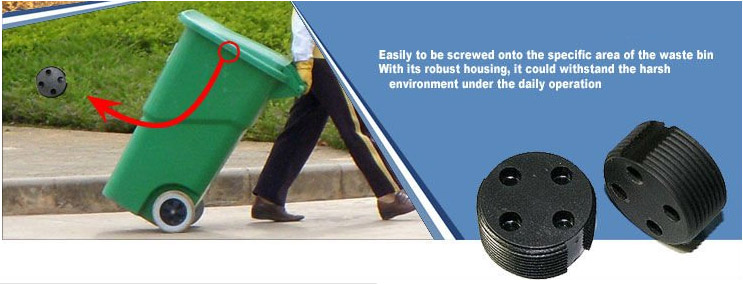RFID (Radio Frequency Identification) technology is transforming various industries, and waste management is no exception. This innovative technology uses radio waves to automatically identify and track data stored on tags, providing real-time updates and eliminating the need for manual data entry. In the context of waste management, RFID is used for tracking waste containers, vehicles, and more, making waste collection and disposal processes more efficient, cost-effective, and sustainable.

RFID technology plays a crucial role in monitoring waste trucks and fleets. By attaching RFID tags to waste collection vehicles, municipalities and businesses can track their movements in real-time. This helps optimize routes, ensure timely collections, and reduce fuel consumption. Whether you are tracking municipal waste trucks or industrial waste fleets, RFID technology makes managing these operations much smoother.
RFID tags can be attached to waste containers, enabling waste management teams to monitor their fill levels. By doing this, RFID ensures that waste bins are collected before they overflow, reducing the risk of sanitation issues and unnecessary pickups. This real-time data also helps schedule collections more efficiently, cutting down on wasteful trips and ensuring that bins are emptied when needed.
In industrial settings, RFID tags are invaluable for managing hazardous or specialized waste. They can track waste containers as they move through different stages of collection, transportation, and disposal. This tracking ensures compliance with environmental regulations and reduces the risk of mishandling dangerous waste materials.

The automation provided by RFID technology significantly improves waste management efficiency. Waste collection can be fully automated, with RFID tracking ensuring that waste is collected on time and without delays. By optimizing vehicle routes and reducing idle time, RFID minimizes fuel consumption and improves overall fleet management.
With RFID, waste management operations become more data-driven. RFID systems provide real-time, accurate data on collection times, bin fill levels, and vehicle performance. This helps municipalities and businesses generate detailed reports for operational reviews, audits, and regulatory compliance, ultimately improving transparency and accountability.
By automating waste tracking, RFID helps reduce labor costs, vehicle wear and tear, and fuel consumption. Additionally, RFID allows for better fleet management by ensuring that trucks follow optimized routes, which minimizes fuel wastage and unnecessary trips. Over time, the savings from these optimizations can be substantial.
RFID technology contributes to sustainability efforts by enhancing recycling processes. By optimizing waste collection, RFID ensures that recyclable materials are picked up on time and sorted properly. This helps reduce landfill waste and promotes more efficient recycling, supporting broader environmental goals.

Geofencing is an advanced feature that works seamlessly with RFID technology. It allows waste management teams to set up virtual boundaries around specific locations. As vehicles enter or exit these boundaries, RFID readers automatically trigger specific actions, such as updating routes or logging collection data. Geofencing ensures that vehicles stay on course and helps managers monitor the fleet’s efficiency in real time.
By combining RFID with geofencing, waste management operations can be fully optimized. This technology allows for comprehensive control over vehicle movements, ensuring that waste trucks stay on their assigned routes and complete collections on time. As a result, waste management becomes more streamlined and operational excellence is achieved.
In several European cities, RFID has been successfully integrated into municipal waste management systems. By tracking the location and fill levels of waste containers, these cities can ensure that waste is collected promptly, preventing overflows and minimizing unnecessary truck trips. This results in cleaner streets, reduced costs, and improved customer satisfaction.
In the US, many industries have adopted RFID to track hazardous waste containers. The technology ensures that these materials are disposed of properly and in compliance with environmental regulations. RFID also allows businesses to generate real-time reports on waste movement, providing an additional layer of accountability.
While RFID offers numerous benefits, there is an upfront investment in tags, readers, and software. For smaller municipalities or businesses, these initial costs might seem daunting. However, over time, the cost savings from optimized operations and reduced labor expenses typically outweigh the initial investment.
Waste management environments can be harsh, with bins exposed to dirt, water, and wear and tear. It’s important to select RFID tags that are rugged and can withstand these conditions. With the right choice of durable tags, waste management teams can ensure that the RFID system works smoothly in the long run.
RFID technology must be integrated with existing waste management software to maximize its effectiveness. Businesses should ensure that RFID systems are compatible with their current management systems, so data can flow seamlessly and improve operations.
As IoT (Internet of Things) technology continues to evolve, RFID is becoming a key component of smart waste management systems. IoT-enabled RFID systems can provide more granular data, such as temperature or humidity levels in waste bins, improving tracking and waste sorting capabilities.
Blockchain technology, when paired with RFID, can provide immutable records of waste collection and disposal. This ensures transparency and accountability, which is particularly important for hazardous waste management and recycling processes.
As more cities adopt smart technologies, RFID will continue to play a critical role in waste management. RFID will be integrated into smart city initiatives, helping cities become more efficient, sustainable, and clean.
RFID is revolutionizing waste management by providing accurate, real-time tracking of waste collection vehicles and containers. By improving operational efficiency, reducing costs, and supporting sustainability, RFID technology is transforming the way we manage waste. Whether it’s for municipal, industrial, or commercial applications, RFID helps streamline waste management processes, ensuring a cleaner, more efficient future.
If you're looking to optimize your waste management operations, consider adopting RFID technology with ZD Technology. Our solutions are designed to help you track and manage your waste efficiently, reducing costs and improving operational efficiency. Contact us today to learn more about how RFID can enhance your waste management system!
Do you need a professional team to provide you with solutions? Contact us for a quote
Let us discuss it with you.